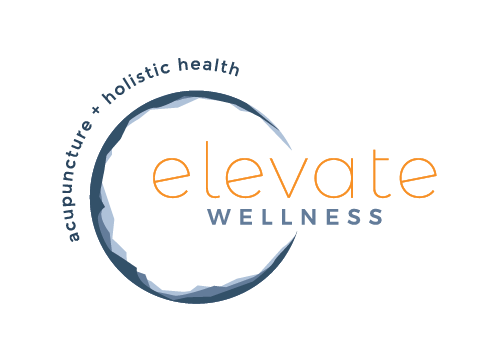Acupuncture for Fertility: Enhancing Reproductive Health Naturally
Reproductive health is a fundamental aspect of overall well-being, and for those aspiring to start or expand their families, it becomes even more significant. While modern medicine offers various fertility treatments, an increasing number of individuals are seeking natural and holistic approaches. One such approach that has gained recognition is acupuncture. Acupuncture is an ancient Chinese therapy that involves the insertion of thin needles into specific points on the body to promote balance and healing. In the context of fertility, acupuncture has shown promising results in enhancing reproductive health naturally.
If you're considering acupuncture for fertility, it's essential to find a qualified practitioner near you. Elevate Wellness St Pete, an acupuncture clinic in St. Petersburg, Fl specializing in fertility treatments. Our experienced acupuncturist understands the unique needs of individuals on their fertility journey and provide personalized care and support.
Understanding Infertility and The Causes of Infertility
Infertility is a condition characterized by the inability to conceive or carry a pregnancy to term despite regular, unprotected sexual intercourse for a year or more. It affects both men and women and can be a source of significant emotional distress for couples desiring to have children.
The prevalence of infertility is more common than often perceived. According to the World Health Organization (WHO), approximately 15% of couples worldwide experience infertility issues. It is crucial to understand that infertility can affect either the male or female partner, or sometimes both.
There are different types of infertility, depending on whether the issue lies with the male or female reproductive system. Male infertility refers to the inability of a man to contribute to conception. It can stem from various factors such as low sperm count, poor sperm motility, or abnormalities in sperm shape. Female infertility, on the other hand, refers to the inability of a woman to conceive or sustain a pregnancy. It can be caused by factors such as hormonal imbalances, polycystic ovary syndrome (PCOS), endometriosis, fallopian tube blockage, or issues with the uterus.
Infertility problems can arise from a multitude of causes. In women, hormonal imbalances, including irregular menstrual cycles or ovulation problems, can contribute to infertility. Structural issues within the reproductive organs, such as blockages in the fallopian tubes or abnormalities in the uterus, can also be underlying causes. In men, problems with sperm production, quality, or delivery can lead to infertility. Other factors that can affect fertility in both men and women include age, lifestyle factors (such as smoking or excessive alcohol consumption), certain medical conditions, and genetic factors.
How Does Acupuncture Help with Fertility?
Acupuncture operates on the principles of traditional Chinese medicine, which views the body as an interconnected system of energy flow. According to this perspective, any disruption or imbalance in the flow of energy, known as qi, can manifest as physical or emotional health issues. By applying acupuncture, practitioners aim to restore the balance of qi, promoting overall well-being, including reproductive health.
One way acupuncture supports fertility is by regulating hormonal balance. Hormones play a vital role in the reproductive cycle, influencing ovulation, sperm production, and the overall functioning of the reproductive system. Through targeted acupuncture points, this ancient therapy helps regulate hormonal levels, promoting optimal reproductive function.
Improved blood flow to the reproductive organs is another mechanism by which acupuncture enhances fertility. Adequate blood circulation is crucial for the delivery of oxygen, nutrients, and hormones to the reproductive organs. Acupuncture stimulates blood flow to the uterus, ovaries, and testes, creating a favorable environment for conception and enhancing the chances of successful fertilization.
Stress and anxiety can have a profound impact on fertility. High levels of stress hormones can disrupt the delicate balance of reproductive hormones, affecting ovulation and sperm production. Acupuncture helps reduce stress and anxiety by activating the body's relaxation response and promoting a sense of calm and well-being. By addressing the emotional and mental aspects of fertility, acupuncture creates a harmonious environment for conception.
In addition to hormonal regulation and stress reduction, acupuncture has been shown to enhance ovulation and improve sperm quality. Acupuncture stimulates the release of endorphins, which can help regulate the menstrual cycle, promote regular ovulation, and improve the quality of eggs and sperm. By optimizing the physiological processes involved in reproduction, acupuncture increases the chances of successful conception.
The benefits of acupuncture for fertility are multi-fold. Firstly, it offers a natural and holistic approach to enhance reproductive health without the use of invasive procedures or medications. Secondly, it addresses not only the physical aspects of fertility but also the emotional and mental well-being, promoting overall balance and well-being. Thirdly, acupuncture can be used as a standalone treatment or in conjunction with other fertility interventions, such as in vitro fertilization (IVF) or intrauterine insemination (IUI), to optimize outcomes. Acupuncture can benefit anyone going through IUI or IVF including people choosing to have a child on their own as well as the LGBTQI community.
Benefits of Acupuncture for Fertility
Acupuncture for fertility offers several advantages as a non-invasive and drug-free approach to enhance reproductive health. Here are some of the key benefits:
Non-invasive and drug-free approach
Unlike certain fertility treatments that involve invasive procedures or medications, acupuncture is a gentle and natural therapy. It utilizes thin needles inserted into specific points on the body, stimulating the body's self-healing mechanisms and promoting balance. This non-invasive approach appeals to individuals seeking alternatives to conventional medical interventions.
Increased chances of conception
Acupuncture has been found to improve the chances of conception by addressing the underlying factors that contribute to infertility. By regulating hormonal imbalances, promoting optimal blood flow to the reproductive organs, and reducing stress, acupuncture creates a favorable environment for conception to occur. It enhances the overall reproductive function and increases the likelihood of successful fertilization.
Improved response to fertility treatments
Acupuncture can complement and enhance the effectiveness of other fertility treatments, such as in vitro fertilization (IVF) or intrauterine insemination (IUI). Studies have shown that acupuncture, when used in conjunction with these procedures, can improve the success rates of assisted reproductive technologies. It helps prepare the body for fertility treatments, optimizes the response to medications, and increases the receptivity of the uterus for embryo implantation.
Enhanced overall reproductive health
Acupuncture takes a holistic approach to fertility by considering the overall well-being of the individual. It not only addresses the specific fertility concerns but also promotes general health and balance in the body. By improving hormonal regulation, reducing stress, and enhancing blood circulation, acupuncture supports the overall reproductive health of both men and women.
As individuals explore holistic treatments for fertility, acupuncture stands out as a gentle and effective option. Its non-invasive nature, ability to increase the chances of conception, improve responses to fertility treatments, and enhance overall reproductive health make it a valuable addition to the range of options available for individuals on their fertility journey.
How Many Sessions of Acupuncture Do You Need for Fertility?
The number of acupuncture sessions needed for fertility can be influenced by various factors, including the individual's specific fertility concerns, overall health, response to treatment, and goals. The severity and duration of the fertility issues, as well as any underlying health conditions, can also play a role. Additionally, lifestyle factors, stress levels, and age may impact the treatment plan.
Typical treatment timeline
The duration of acupuncture treatment for fertility can vary for each person. In general, a treatment plan may span several weeks or months. Initially, more frequent sessions may be recommended to establish a foundation and address any immediate concerns. As progress is made, the frequency of sessions may decrease. It's important to maintain consistency and adhere to the recommended treatment timeline to optimize the benefits of acupuncture.
Integrating Acupuncture with Other Fertility Treatments
Acupuncture can be effectively integrated with other fertility treatments, providing a holistic approach to enhance your reproductive journey. Here are some ways to integrate acupuncture with other fertility treatments:
Complementary therapies
Acupuncture can be complemented with other complementary therapies, such as herbal medicine and nutrition. Herbal medicine, when used under the guidance of a qualified practitioner, can support hormonal balance and reproductive health. Additionally, adopting a nutritious and fertility-friendly diet can optimize your overall well-being and increase the chances of successful conception. Your acupuncturist can provide guidance on suitable herbal remedies and dietary recommendations tailored to your specific needs.
Coordinating with fertility clinics and specialists
When undergoing fertility treatments such as in vitro fertilization (IVF) or intrauterine insemination (IUI), coordination between your acupuncturist and fertility clinics or specialists is crucial. Open communication and collaboration allow for a comprehensive approach to your fertility care. Your acupuncturist can work alongside your fertility team, adjusting acupuncture treatments to align with your reproductive procedures, timing sessions to optimize the benefits and support the various stages of your fertility treatment.
Discussing acupuncture with your healthcare team
It's important to discuss your interest in acupuncture with your healthcare team, including your primary care physician, gynecologist, or fertility specialist. They can provide insights, answer your questions, and offer guidance specific to your medical history and fertility goals. Sharing information about your acupuncture treatments allows your healthcare team to have a complete understanding of your fertility plan and can facilitate effective coordination between different aspects of your care.
IVF Acupuncture for Infertility Issues - Holistic Treatment
IVF acupuncture is a specialized approach that focuses on providing acupuncture support specifically during IVF treatment cycles. Acupuncture sessions are strategically timed to coincide with important milestones of the IVF process, such as medication administration, egg retrieval, embryo transfer, and the two-week wait period. IVF acupuncture aims to optimize the success of the procedure by promoting relaxation, reducing stress, enhancing blood flow to the uterus, improving follicle development, supporting implantation, and supporting the overall reproductive environment.
By integrating acupuncture with other fertility treatments, you can benefit from a comprehensive and synergistic approach. The combination of acupuncture, complementary therapies, coordination with fertility specialists, and open communication with your healthcare team can enhance the effectiveness of your fertility journey and increase the chances of achieving your desired outcome.
Conclusion - Using Acupuncture for Fertility Treatment
In conclusion, acupuncture offers a range of benefits for enhancing fertility naturally. Throughout this article, we have explored how acupuncture can regulate hormonal balance, improve blood flow to reproductive organs, reduce stress and anxiety, and enhance ovulation and sperm quality. By taking a holistic approach to fertility, acupuncture promotes overall reproductive health and increases the chances of successful conception.
One of the key advantages of acupuncture for fertility is its non-invasive and drug-free nature. It provides a gentle and natural alternative to traditional fertility treatments, empowering individuals to explore holistic options. However, it is essential to emphasize the importance of consulting with a qualified healthcare professional. Seeking the guidance of a skilled acupuncturist who specializes in fertility, such as Dr. Kim Kuhn at Elevate Wellness in St. Pete, ensures that you receive expert care tailored to your specific needs.
As you embark on your fertility journey, we encourage you to explore natural fertility options, including acupuncture. Its incorporation of holistic treatments, such as herbal medicine, nutrition, and lifestyle modifications, further enhances the overall effectiveness of the therapy. By embracing a comprehensive approach, you can optimize your reproductive health and increase the likelihood of achieving your desired outcome.
Dr. Kim Kuhn
Holistic Acupuncture in St. Petersburg, Fl
Frequently Asked Questions About Fertility and Acupuncture
Is acupuncture safe during pregnancy?
Acupuncture is generally considered safe during pregnancy when performed by a qualified acupuncturist. It is important to inform your acupuncturist about your pregnancy and choose an experienced practitioner who has expertise in prenatal acupuncture. Acupuncture can help support a healthy pregnancy, alleviate pregnancy discomforts, prepare for labor and delivery, and promote overall well-being.
Can acupuncture help with male infertility?
Yes, acupuncture can be beneficial for male infertility. It can help improve sperm count, motility, and morphology by regulating hormonal balance, reducing oxidative stress, and enhancing blood flow to the reproductive organs. Acupuncture is often used as part of a comprehensive treatment plan for male infertility alongside lifestyle modifications and other supportive therapies.
Can acupuncture be used alongside IVF or IUI?
Yes, acupuncture can be used alongside in vitro fertilization (IVF) or intrauterine insemination (IUI) treatments. Many individuals choose to integrate acupuncture with these assisted reproductive technologies to optimize outcomes. Acupuncture sessions can be strategically timed to align with different stages of the IVF or IUI process, such as before and after embryo transfer. Coordinating with your fertility specialist and acupuncturist allows for a well-coordinated approach to enhance your chances of success.




